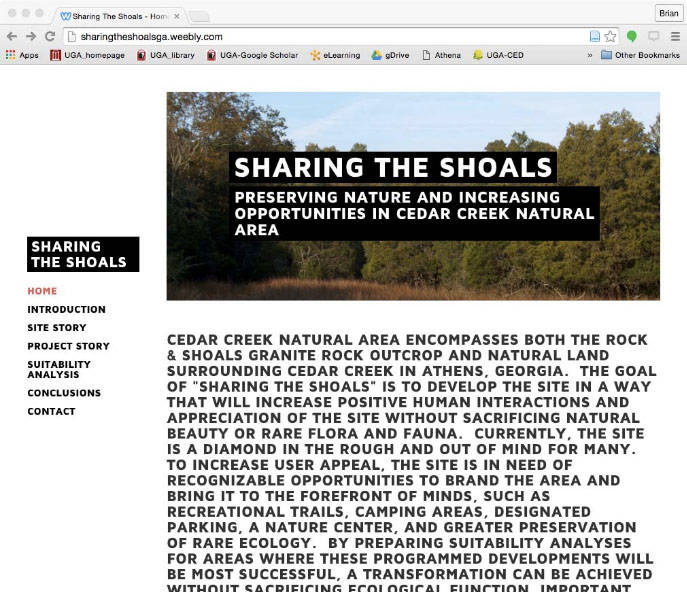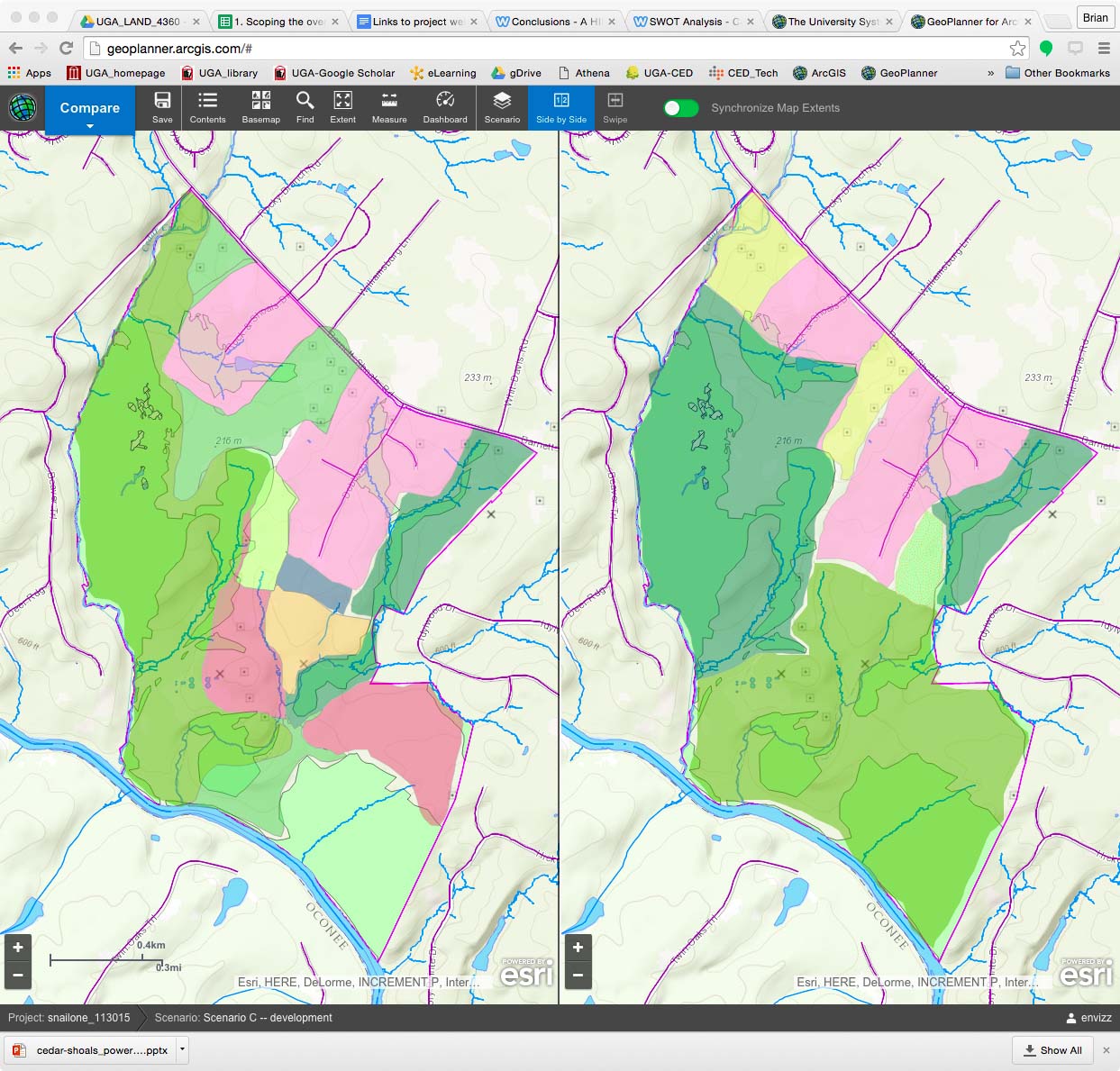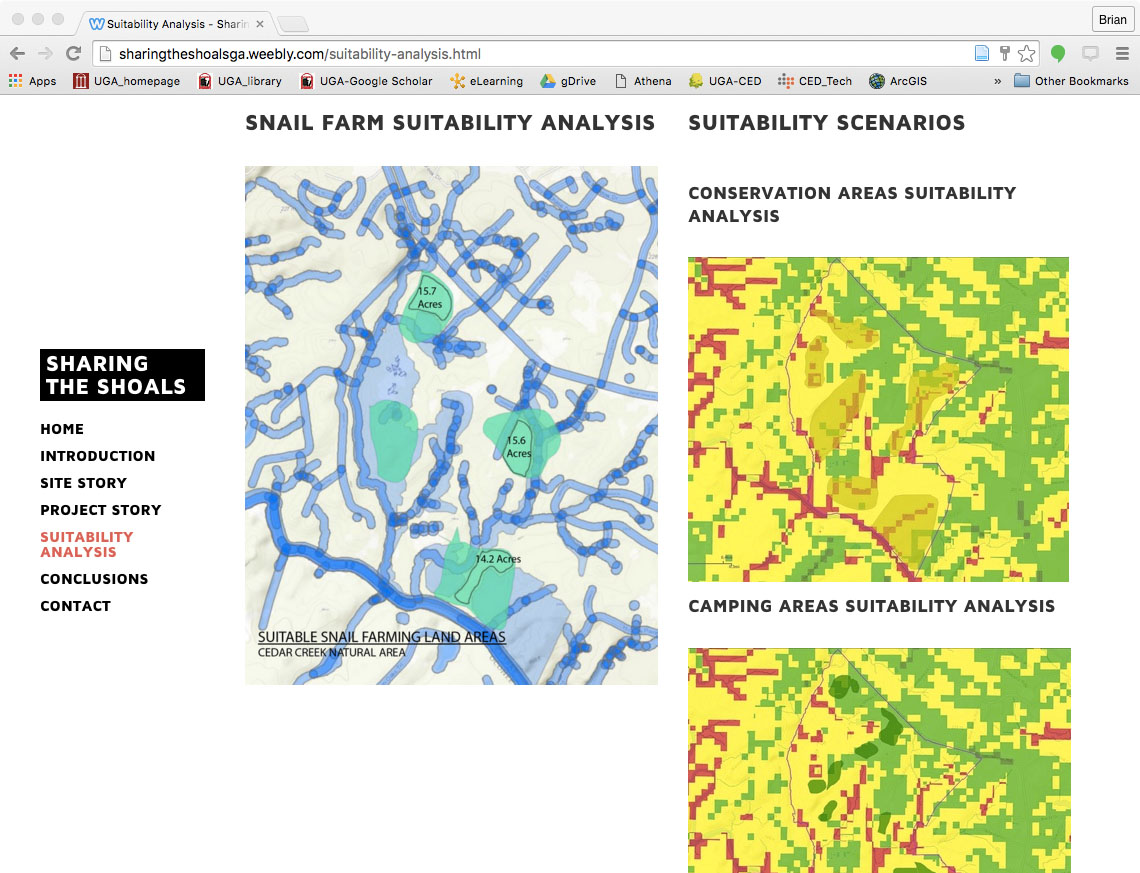
Brian Orland and multiple students
The site selection for a hypothetical edible snail farm was used to introduce GeoPlanner® as a geodesign platform, the unfamiliar topic chosen deliberately to engage students in LAND4360, Applied Landscape Ecology, in bringing landscape performance metrics to evidence-based design scenarios. GeoPlanner® is an interactive geodesign tool supported by on-line resources delivered by the ArcGIS Online repository. a combination of Google Docs® to support Delphi- like priority setting, ESRI GeoPlanner® for spatial analysis and ESRI Story Maps® supports students in creating design narratives that critically engage the problem of concurrently protecting valuable habitat and yet promoting economic development.
Context
More details at: Orland, B. 2016. Geodesign to Tame Wicked Problems. Journal of Digital Landscape Architecture. (1) 187-197.


